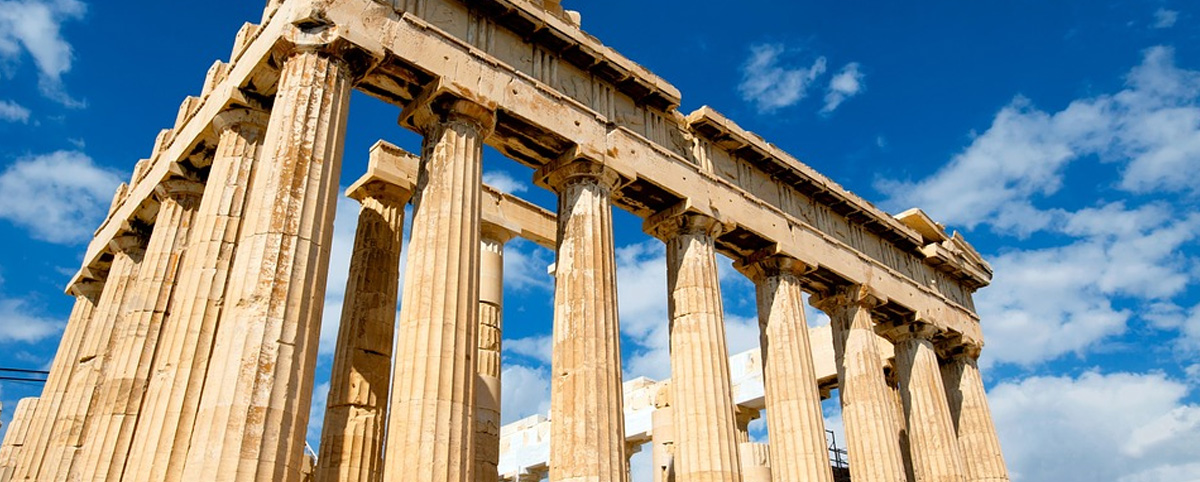Autumn cultural conferences
Posted in Events on 3 November 2022

21 October and 4, 11, 18 November 2022 at 5 pm.
Ancona, Museo Tattile Statale Omero.
The Hellenic Institute of Cultural Diplomacy has organized a series of cultural conferences at the Museo Omero, with the patronage of the Academy of Sciences, Letters and Arts of the Marche Region and the Italian Association of Classical Culture - Delegation of Ancona. Admission is free.
21 October at 17:00
Formal harmony according to the canon of Polykleitos
Prof. Fabrizio Bartoli
Polykleitos (in ancient Greek: Πολύκλειτος, Polýkleitos) was an ancient Greek sculptor, bronzist and theorist, active between about 460 and 420 BCE, famous for his canon. He was one of the greatest masters of classical Greek sculpture, influencing most of the Greek sculpture of the following century. None of his original works has survived and we can only admire copies made in Roman times.
4 November at 17:00
The Orphic Tradition in Ancient Greece and Magna Graecia
Prof. Fabrizio Bartoli
Orphism developed in ancient Dacia and Thrace in the historical period located around the ninth century BCE, after Homer, and subsequently in Greece and Italy (Magna Graecia). It is named after Orpheus, a mythological character, considered a great sage, Magus, Theologian, innovator and rectifier.
11 November 11 at 17:00
Alexandros and Siddhartha. The journey to the limits of the known and the image of god
Prof. Massimo Lopez
Alexander the Great and Siddhartha were two very different and distant historical characters who accomplished exceptional feats. They each made an incredible journey, pushing themselves beyond the known boundaries, one through the greatest empire towards the limits of the known world, the other into the boundless territories of the inner universe.
However, Hellenism and Buddhism came together in a particular Asian region and generated an innovative art with most original forms and profound implications that allow us to question the nature of the journey towards the unknown.
18 November at 17:00
Being in tune with universal harmony (the topicality of Pythagorean and Platonic teaching on harmony)
Prof. Fabrizio Bartoli
"What is the most beautiful thing? Harmony, would have been the reply of a Pythagorean" (Iamblichus – On the Pythagorean way of life).
Rediscovering psycho-physical and inner harmony has become ever more important nowadays. In the Greek tradition there were two "giants", the great philosophers Pythagoras and Plato, who studied the theme of Harmony in great depth. We have much to learn from them and their teaching is certainly still relevant today.
Harmony is one of the fundamental themes of the philosophies of Pythagoras and, later, of Plato. Harmony was understood in a universal sense and therefore included nature with its geometry and the harmonic relationships of cosmic and terrestrial cycles, as well as music and the realisation of social harmony through right ethics. It is said that Pythagoras (580-495 BCE) could hear the "music of the spheres". In a symbolic sense, that might mean the ability to see, contemplate and listen to universal harmony.
Listening to and understanding Universal Harmony should be a fundamental prerequisite for "getting in tune" with this Harmony that is present throughout the Cosmos. It is necessary to refocus our attention on this Universal Harmony, the Harmony of the Spheres, and better understand the importance of being in concord with these Universal Principles - a concept that evokes the great value of the ancient Egyptian principle from the hermetic tradition "As above so below", later taken up by Christianity as "On earth as it is in Heaven".
Info and bookings
Phone: 3403477226
email: info@iedc-ancona.com
